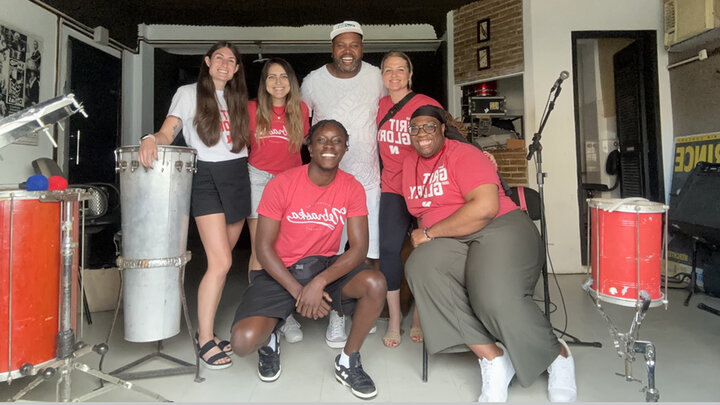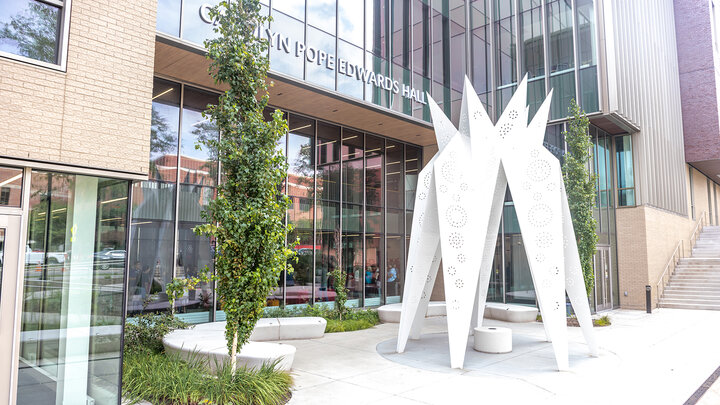It’s safe to say that international students at the University of Nebraska-Lincoln are currently on a “study abroad” experience. While it might be true — that if one is traveling to another country to study, the term studying abroad would be applicable — many international students feel as though the ability to travel out of the U.S. as a student is only for their domestic peers, and not for them.
This summer, Julius Owusu Afriyie, a recent graduate student from UNL with a master's degree in education administration, studied abroad in Salvador de Bahia, Brazil — away from the U.S., while already living abroad from his native country of Ghana.
The three-week-long summer program titled, “Systemic inequities in Brazil and the U.S” through the College of Education and Human Sciences , focused on topics including the country’s history of slavery, the use of dance and graffiti as forms of resistance, and Afro-Brazilian religions, to name a few.
“We learned a lot about Brazil’s politics, culture, and participated in many activities like samba, capoeira, playing percussion, and visiting a quilombo — which are runaway slave towns, along with mixed religion,” Owusu Afriyie said.
According to a 2023 article from the BBC, Candomblé is described as “a syncretic religion that blends Yoruba and other West African traditions with Roman Catholicism,” tracing back to enslaved Africans who were forced into Catholicism — but wanted to keep their own spiritual identity.
Owusu Afriyie, born in Accra, Ghana — was inspired by the African influences that were embedded in Salvador — with 80% of the population tracing their roots back to Africa.
“Everything reminded me of home,” he said. “From the music, food, beaches, enjoyment as a way of life and the community, so much was the same. Even the favelas [slums] look like home as well.”
While international students can study abroad, the process may take longer, as visa regulations are not as easy to maintain — and some financial scholarships are not available to non-U.S.-born students.
Former director of Global Experiences, Cody Hollist, spoke on why numbers for international students studying abroad are not as high.
“I am not sure if that is because they don’t know they can go, or if it is because they think since they are studying abroad already, what will it truly do to help them professionally,” Hollist said.
Owusu Afriyie added to those challenges, saying: “It’s expensive, and it involves a lot of paperwork and visa restrictions. Some of them don’t have consulates here in Nebraska or online services, so you may have to travel to a state that has consulate service.”
Although international students are currently away from their countries, they are still exploring the world in an Americanized context.
Hollist explained the benefits of continued travel for more cultural exploration and perspectives for when they return home.
“Being in another country while studying your profession enables you to practice the translating skills to a new context,” he said. “It mimics the experience international students have when they return home and need to translate what they've learned while studying at UNL into the context of their home country.”
If Owusu Afriyie could give incoming students any advice, he said to “start the process as soon as possible.”
“Get yourself immersed in the culture before you go,” he said. “And really try to experience it the right way.”
College of Education and Human Sciences
Educational Administration
CEHS Global Experiences




